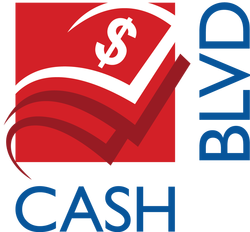Payday lending is pretty simple. A person has an urgent short-term need for cash and goes to a payday lender. A person with a job, a checking account and proper identification can borrow anywhere from $50 to $500 until his or her next payday. Such borrowers write post-dated checks or provide written authorizations to the payday lender for the amount of the loan plus a fee, which is typically 10% and a $5 verification fee for Florida residence. On the next payday the loan is either repaid in person by the borrower or the lender cashes the check or initiates an electronic funds transfer. That's it.
The average first-time payday transaction is completed within 15 minutes. Very few banks are willing to make these loans – the transaction costs are simply too high.
Critics of payday lending cite the high interest rates they charge. A $15 fee on a $100 advance for two weeks amounts to a 391% annual percentage rate, or APR. That's high when expressed as an annual rate, but keep in mind that the typical term of these loans are a couple of weeks. It's also notable that the annualized interest rate on the average payday loans is much lower than it would be for the fee on a bounced check or a late mortgage or credit card payment.
The $15 cost of a $100 payday loan also pales in comparison with the lost income when a car is out of commission and a job lost. Good payday lenders clearly disclose their loan terms and conditions, including the dollar amount of any fees and the APR. Furthermore, payday lenders are regulated and supervised by state agencies: Florida Office of Financial Regulations and the new federal Consumer Financial Protection Bureau.
Critics of payday lending cite the high interest rates they charge. A $15 fee on a $100 advance for two weeks amounts to a 391% annual percentage rate, or APR. That's high when expressed as an annual rate, but keep in mind that the typical term of these loans are a couple of weeks. It's also notable that the annualized interest rate on the average payday loans is much lower than it would be for the fee on a bounced check or a late mortgage or credit card payment.
The $15 cost of a $100 payday loan also pales in comparison with the lost income when a car is out of commission and a job lost. Good payday lenders clearly disclose their loan terms and conditions, including the dollar amount of any fees and the APR. Furthermore, payday lenders are regulated and supervised by state agencies: Florida Office of Financial Regulations and the new federal Consumer Financial Protection Bureau.


